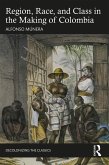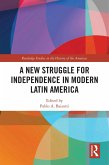Why has Argentina failed so spectacularly, both economically and politically? It is a puzzle because the country seemed to have all the requirements for greatness, including a well-established middle class of professionals. Its failure raises the specter that other middle-class societies could also fail. In Argentina, MacLachlan delivers history with a plot, a sense of direction and purpose, and fascinating conclusions that reveal a much more complex picture of Argentina than one might have had in mind prior to reading this book. Argentina traces the roots of the nation from the late colonial period to the present, and examines the impact of events that molded it: the failure of political accommodation in 1912, the role of the oligarchy, the development of a middle class, gender issues, the elaboration of a distinct culture, the era of Peron, the army, and the dirty war. The conclusion suggests the reasons for the nation's difficulties. The IMF, World Bank, and international financial markets play a role, but so does a high level of political corruption and mismanagement of the economy that emerged from political and economic failure. Juan and Eva Peron tried to override politics to create an economic and social balance between urban labor and agriculture interests, but failed. The dirty war arose from that failure. Nationalism forged a culture of victimization and resentment that continues to this day. Laying aside standard explanations, MacLachlan presents a portrait of Argentina that emphasizes the role of a destructive nationalism-and a form a corruption that turns citizens into clients.
Bitte wählen Sie Ihr Anliegen aus.
Rechnungen
Retourenschein anfordern
Bestellstatus
Storno









